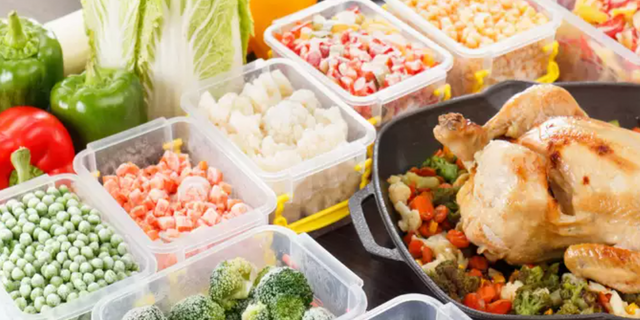10 Fresh foods you should always buy frozen
Fresh from the market is not always the best when it comes to these foods. When frozen, they retain their freshness and nutrients without losing their flavour. It also saves time and money in ordering take-out.
The fridge or freezer can be a cold dark place for “unhealthy” foods if you don’t know how to fill it with healthy foods and snacks.
Know what items need to go in the freezer or what to buy frozen with Laura Burak’s nutrition expertise.
Burak, MS, and Registered Dietitian say “Frozen items are one of the best ways to never say ‘what’s for dinner?’ again. Stocking up with lots of nutrient-packed foods that you can simply heat and eat (or blend and sip), will save you time, and money, and can be much healthier than ordering take-out again.”
Berries, other fruits
They are frozen when they are most ripe which makes them more nutritious than fresh ones. Among berries, nutritionists recommend frozen blueberries as nutrient powerhouses with double the antioxidants compared to fresh berries and 72 percent more fibre.
Pick out the organic brands and enjoy this hibernating nutritious fruit.
Peas
Similar to fruits, vegetables also get to keep their nutrients better in frozen form. Frozen peas are easy to add to any meal, especially instant meals. They bring protein, fibre, and nutrition to any dish. They also rarely need washing or sorting and putting them back in the fridge keeps them fresh, compared to fresh peas.
Spinach
Keeping or buying a stack of spinach is great for instant meals to boost a balanced diet. It is easy to reach for them and add them to stews, meat dishes, and smoothies when they are clean and well-packaged.
For inspired cooking, they are such a convenience. The same can be said about the rest of the items on this list.
Corn
Locally called maize, this meat meal staple is seasonal. Because they can go missing for months, stocking frozen ones will keep your barbecue days corn-full. Frozen corn, unlike fresh corn, is also always available. They retain their flavour and sweetness.
To recover the most flavour from frozen corn, cook it with your favourite spices in a frying pan. You don’t have to heat it. Simply wash it free of ice crystals.
Edamame
This is the preparation of immature soybeans, especially in East Asia. They are rich in Vitamin E and proteins. It is a great addition to salads and vegetable dished. They also act as snacks and appetizers with a little salt.
They can be hard to find in fresh form but easier in frozen form.
Sliced bread, wheat-based items
Frozen bread and pastries stay longer than fresh bread.
“Keeping a sliced loaf of bread, English muffins, bagels, or toaster waffles for quick breakfast ideas and sandwiches. These foods can be plopped directly into the toaster oven from the freezer and are ready in mere minutes. Just try to limit any frozen toaster items, which typically include gobs of added sugars,” Burak says.
You can also buy fresh bread and keep it frozen.
Fish, poultry, meat
These protein powerhouses don’t stay fresh for long and lose their appeal faster if not frozen. They also have quite the smell in their fresh form compared to the frozen form.
“Veggie burgers are also best bought frozen and they will last for several months in the freezer,” she says.
Pizza
Reheating a slice of pizza for dinner or to eat while the main dish cooks is a lifesaver. The flavour is easily retained and the cheese stays fresh. In most cases, you only have to add a side salad or veggies for the meal.
Appetizers
Keeping frozen appetizers is a great kitchen or food etiquette. Especially soup appetizers that are both tasty and healthy.
10. Desserts
Frozen desserts are a great way to cool off after a hot meal. Their sweetness is retained and they stay compact whereas fresh desserts would have a warm sloppy texture. This means you can have an endless supply of desserts without them going bad or losing their appeal.



